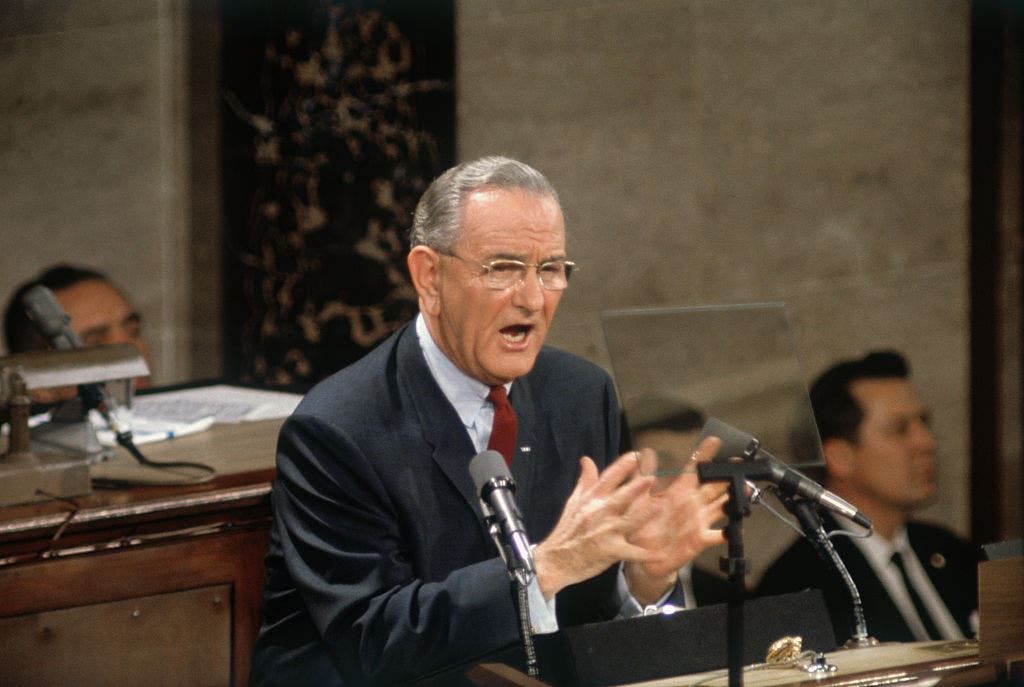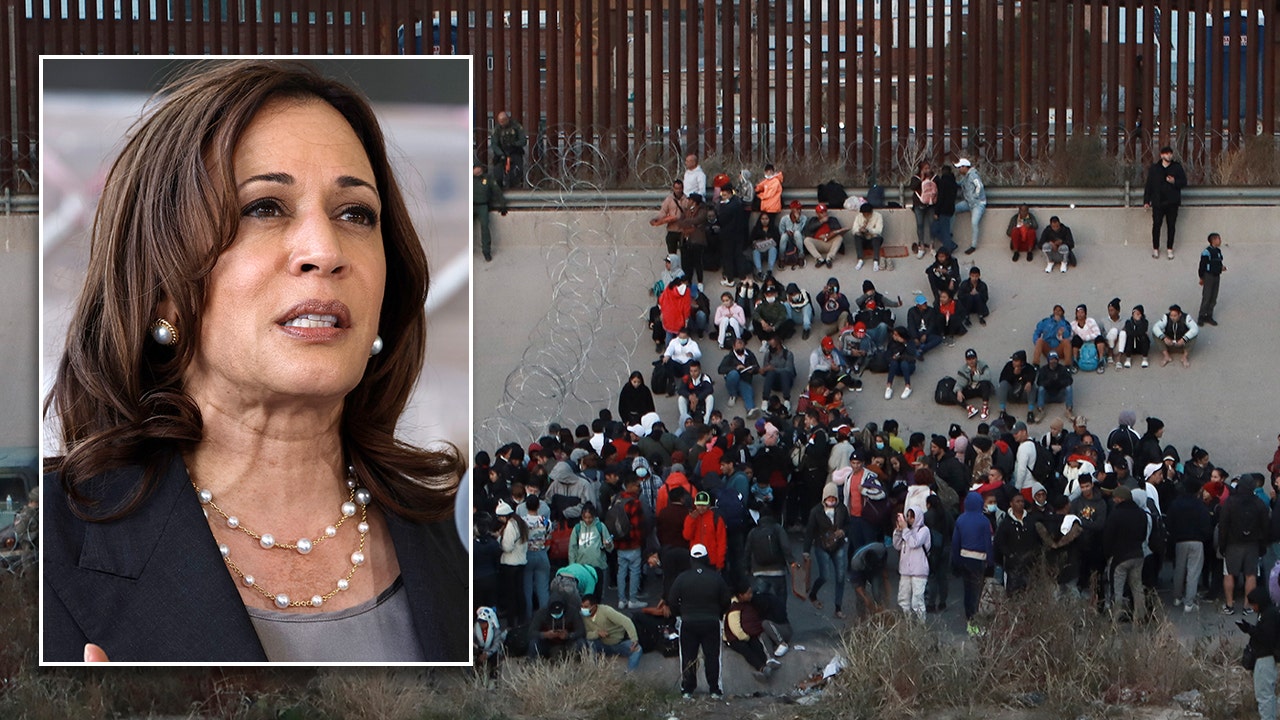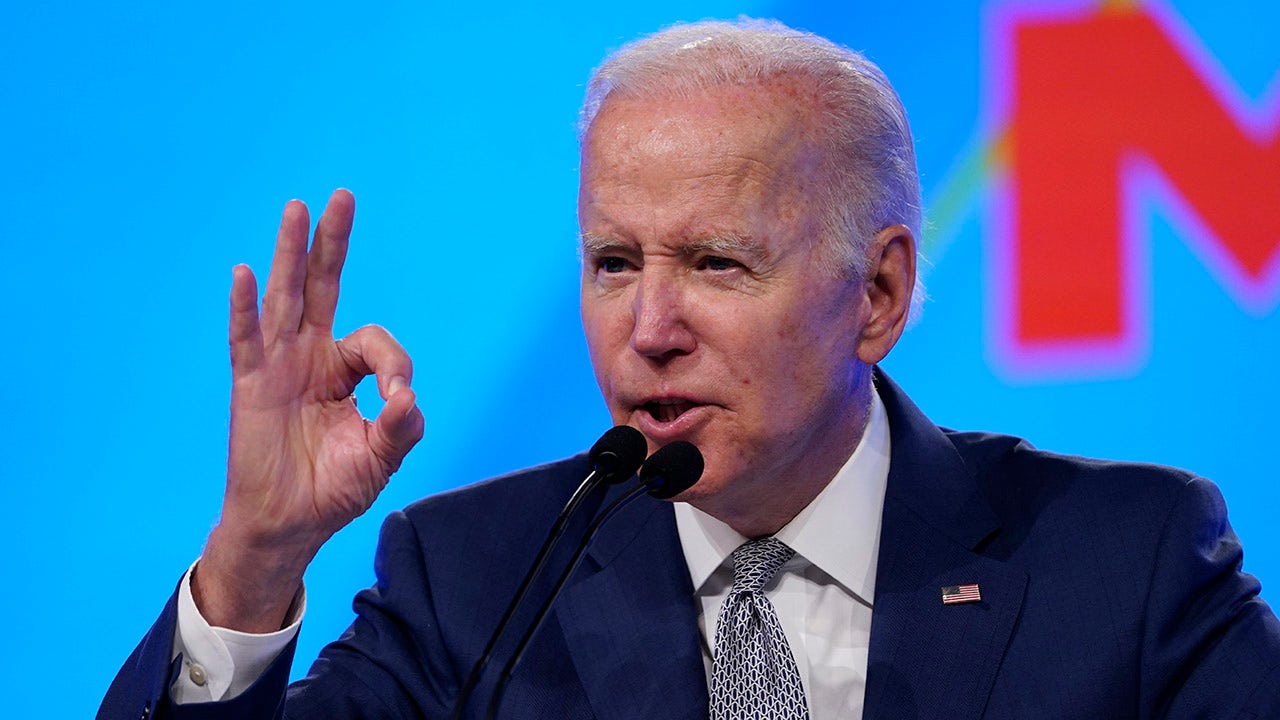President Lyndon B. Johnson proposed a new utopian vision for the United States under a greatly expanded federal government, which he called the Great Society, on this day in history, January 4, 1965.
“We seek to establish harmony between man and society, which allows each of us to expand the meaning of our lives and to all raise the quality of our civilization. This is the search we begin tonight,” declared the president. to the nation in his State of the Union address.
It was the first televised State of the Union, broadcast in prime time directly to the American people, not just to both houses of Congress as the Constitution requires.
ON THIS DAY IN HISTORY, JANUARY 3, 1987, ARETHA FRANKLIN IS THE FIRST WOMAN INCLUDED INTO THE ROCK HALL OF FAME
“The Great Society asks not how much, but how good; not just how to create wealth but how to use it; not just how fast we are going, but where we are going,” the president added, as he implored all Americans to action. .
The Great Society “will not be a gift from the government or the creation of presidents,” he also stated.
President Lyndon B. Johnson delivers a State of the Union address to a joint session of Congress. LBJ outlined his vision of a “Great Society” in the January 4, 1965 speech. (Getty Images)
Johnson’s vision offered a helping hand to Americans most in need, Great Society advocates have argued over the years.
His vision failed dramatically by any empirical standard and only succeeded in expanding the size and inefficiency of the federal bureaucracy and institutionalizing generational poverty, his critics have noted.
Johnson assumed the Oval Office after the assassination of President John F. Kennedy in November 1963.
ON THIS DAY IN HISTORY, NOVEMBER 22, 1963, JOHN F. KENNEDY, 35TH PRESIDENT, IS ASSASSINATED
LBJ was elected to office a year later, soundly defeating Arizona Republican Barry Goldwater (486 to 52 Electoral College votes), just nine weeks before the State of the Union.
“The Great Society will not be a gift from the government. It will require every American… to make the journey.” —President Lyndon B. Johnson
He used his overwhelming victory as a State of the Union mandate to argue for the need for greater American involvement in the Vietnam War and to propose the federal government as a response to a wide range of human ills and social problems.
“Are [in Vietnam] “First,” he said, “because a friendly nation has asked us for help against communist aggression… Ignoring the aggression now would only increase the danger of a much greater war,” he added.

Peace protesters display a sign referring to the president as a war criminal during a large protest against the Vietnam War at the Pentagon in Washington, DC. (Getty Images)
He then issued nine direct proposals, the basis of the Big Society, to address everything from education and crime to the environment and urban renewal.
Their challenges also included more obtuse goals.
ON THIS DAY IN HISTORY, JANUARY 2, 1920, THOUSANDS ARRESTED BY THE DOJ IN NATIONWIDE ‘PALMER RAIDS’
“I propose that we wage an all-out campaign against waste and inefficiency,” Johnson said in announcing his wish list for the federal government.
Johnson introduced the term “Great Society” during the 1964 election campaign, a phrase coined by speechwriter Richard N. Goodwin.
His 1965 State of the Union was followed by an intense flurry of legislative activity by Democrats on Capitol Hill, who were in the midst of a 26-year period of control of both houses of Congress (1955-81).
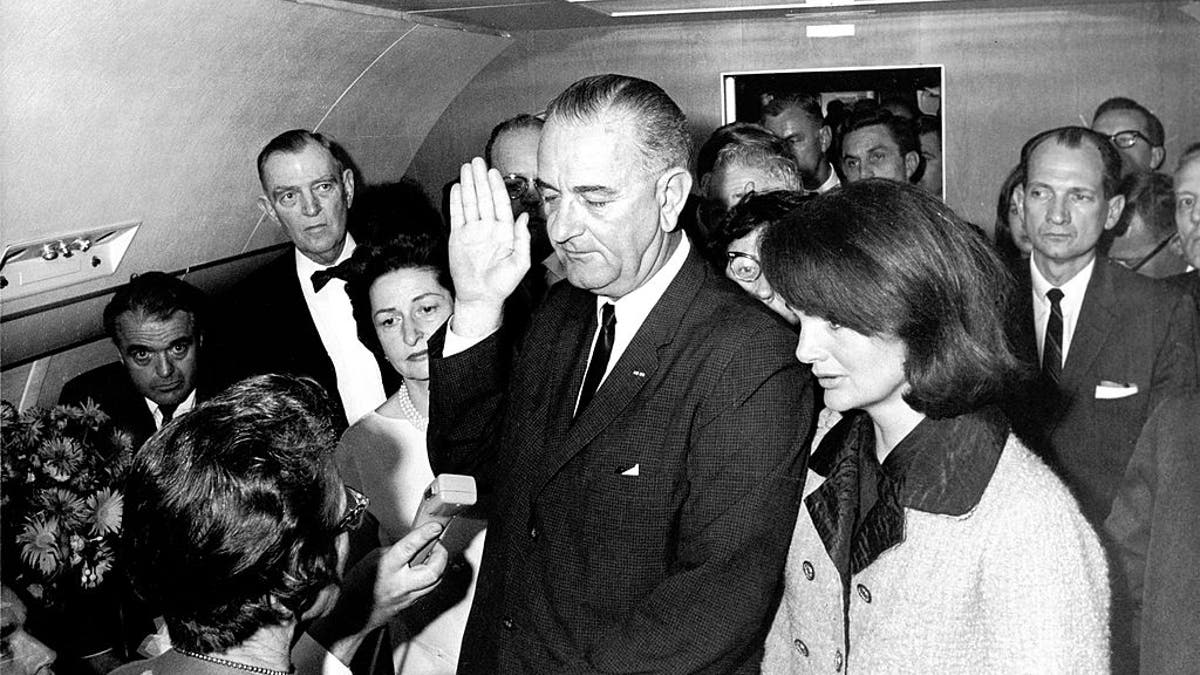
Following the assassination of President John F. Kennedy, Vice President Lyndon Baines Johnson (1908-1973) is sworn in to become the 36th president. He was sworn in by U.S. Judge Sarah T. Hughes (1896-1985) on Air Force One in Dallas, Texas, on November 22, 1963, while Kennedy’s widow, Jacqueline Lee Bouvier Kennedy, stood at her side. . (Universal History Archive/Getty Images)
“The 1965 State of the Union address announced the creation of Medicare/Medicaid, Head Start, the Voting Rights Act, the Civil Rights Act, the Department of Housing and Urban Development, and the White House Conference on Natural Beauty,” writes History.com.
“Johnson also signed the National Endowment for the Arts and Humanities Act, from which emerged the National Endowment for the Arts and the National Endowment for the Humanities.”
“The War on Poverty was destined to be one of the great failures of 20th century liberalism.” —Allen J. Matusow, historian
The Great Society was, at its core, an effort to attack poverty in America and the challenges to education, health, and opportunity that come with it.
Johnson had introduced the “war on poverty” in his State of the Union a year earlier.
On this central goal – reducing or even eliminating poverty – the Great Society has been wasteful by any empirical measure.
EQUINOX ANTI-NEW YEAR’S RESOLUTION CAMPAIGN CAUSES SOCIAL MEDIA Uproar: Take It ‘TO ANOTHER PLACE’
“The War on Poverty was destined to be one of the great failures of 20th-century liberalism,” said historian and Rice University professor Allen J. Matusow, according to the Foundation for Economic Freedom.
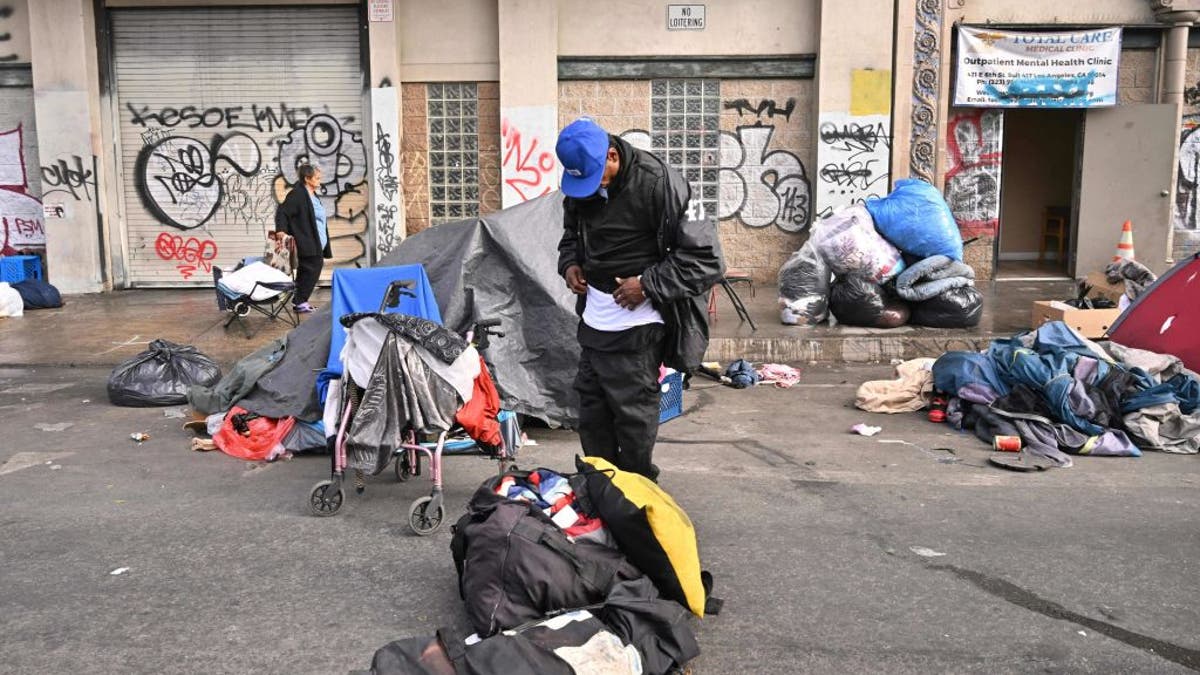
Homeless people with their belongings outside a mental health outpatient clinic in Los Angeles, California, on December 6, 2022. (Frederic J. Brown/AFP via Getty Images)
“Those who benefited most directly,” he continued, “were the middle-class doctors, teachers, social workers, builders, and bankers who provided federally subsidized goods and services of sometimes suspect value.”
The foundation added, quoting poverty researcher Michael D. Tanner of the Cato Institute: “Giving money to the problem has not reduced poverty or made the poor self-sufficient. Instead, government programs have torn the social fabric of the country and have been a “A major factor in the increase in out-of-wedlock births with all the problems that come with them.”
“Giving money to the problem has not reduced poverty or made the poor self-sufficient.” —Michael D. Tanner, Cato Institute
He continued: “The most tragic thing of all is that the pathologies they engender have been transmitted from parents to children, from generation to generation.”
CLICK HERE TO SUBSCRIBE TO OUR LIFESTYLE NEWSLETTER
Meanwhile, the quality of public education in the United States has declined across all demographics and sectors of society since the 1960s, while the gap between the educational achievement of white and black children is wider than ever, according to numerous educational studies.
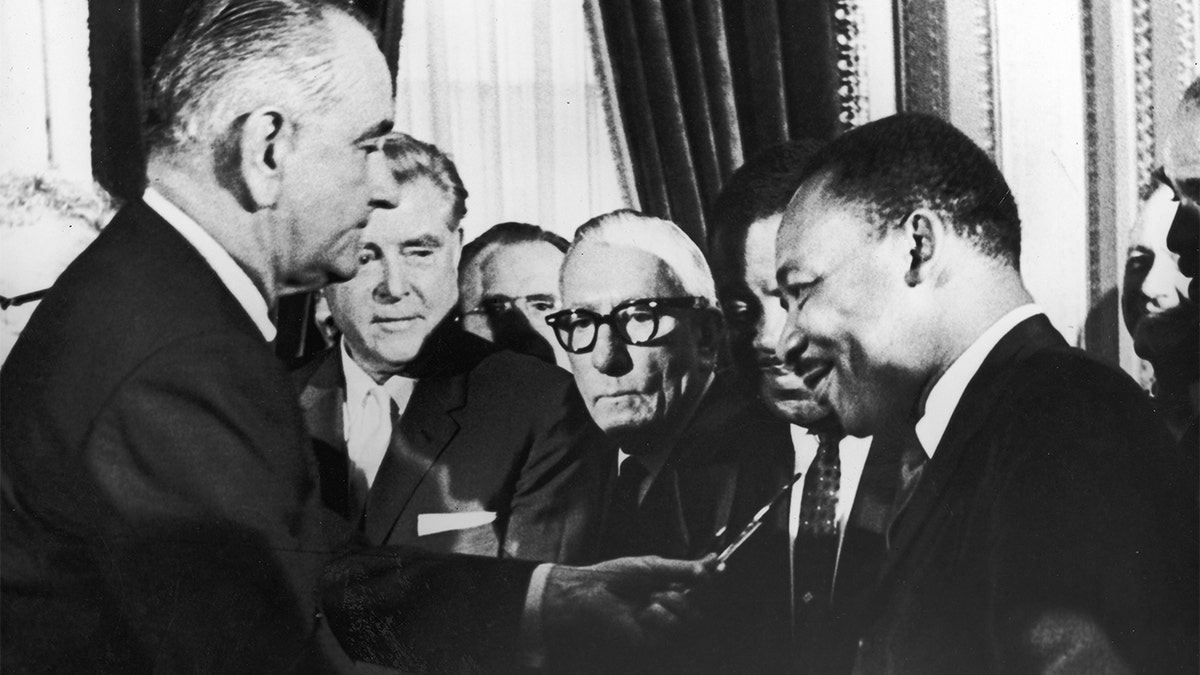
President Lyndon B. Johnson presents a pen to the Rev. Martin Luther King Jr. during the signing of the Voting Rights Act in Washington, DC, on August 6, 1965. (Washington Office/Getty Images)
The Great Society has managed to turn the federal government into an insatiable leviathan.
The federal budget soared from $118.2 billion when Johnson took office in 1963 to $195.6 billion when he left in 1969, according to the American Presidency Project at the University of California, Santa Barbara. That’s an increase of 65.5%.
The federal budget last year was $6 trillion with a deficit of $1.8 trillion, according to the same report.
“The hopes and promises articulated by Johnson were grandiose and inevitably raised expectations (ending poverty and racism, for example) that no president could truly hope to achieve,” the historian and professor of political management at the University wrote in 2015. George Washington, Matthew Dallek. .
CLICK HERE TO GET THE FOX NEWS APP
“Although many of Johnson’s programs remain in effect today,” History.com writes, “his Great Society legacy has been largely overshadowed by his decision to involve greater numbers of American soldiers in the controversial Vietnam War. “.
For more lifestyle articles, visit www.foxnews.com/lifestyle

